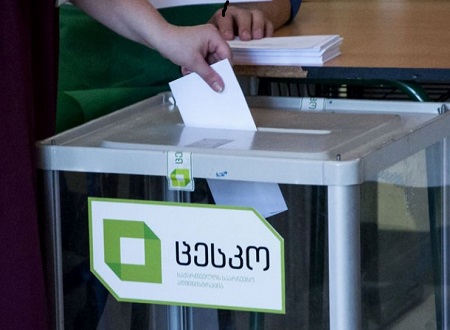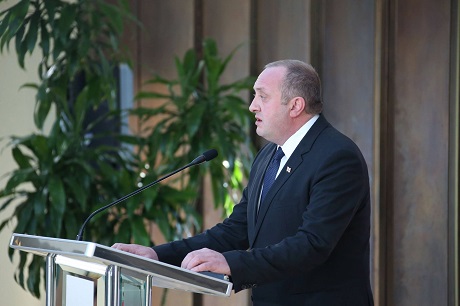Major electoral reform ahead in Georgia

The country's Parliamentary Elections are set to undergo a major electoral reform following the 2016 elections in Georgia.
The 2016 elections will be held in the same manner as before but some "important details" will be changed, which the Government believed would create a more "competitive and equal election environment” in the country.
Yesterday Georgia’s Prime Minister Irakli Garibashvili voiced the parliamentary majority’s decision after a vote about the reform, where he said the next Parliamentary Elections would be held in the autumn of 2016 under the current mixed system.
In this system, 73 lawmakers in Georgia's 150-seat legislative body are elected in 73 majoritarian, single-mandate constituencies and the remaining 77 seats are allocated by a party-list, proportional vote.
However, PM Garibashvili said some of the shortfalls of this system would be corrected, which will include redrawing of single-mandate districts to provide equality of suffrage.
The existing majoritarian system over-represents voters from small election districts by giving districts with greatly differing populations one Member of Parliament (MP) each. As a result, the number of voters in a district may vary from a few thousand to over 100,000 – yet they both get to elect one majoritarian MP. That means the strength of one vote in one district is multiple times stronger than one citizen’s vote in another district.
Currently the number of voters in the largest district is more than 150,000 while in the smallest one there are less than 6,000.
The PM said this imbalance would be corrected before the 2016 elections by merging some election districts that have smaller numbers of voters or splitting those with larger voter numbers.
"We plan to conduct the 2016 autumn Parliamentary Elections under the current mixed system, in which, as per the Constitutional Court's decision, the current imbalance between the quantities of voters in majoritarian districts will considerably be reduced and also a 50 percent barrier will be imposed,” the PM said.
The current legislation sets a 30 percent barrier for majoritarian elections. If a majoritarian MP candidate receives more votes than others, but not less than 30 percent, he or she is declared the outright winner of the race.
The head of the Georgian Government said all of these constitutional and legislative decisions for reforming the election system were planned to be made by the end of the year.
Meanwhile, in the long term the Government planned to discard the majoritarian system and move to the proportional electoral system for parliamentary elections following the 2016 elections.
When asked why this change could not be implemented before next year's elections, Georgia's Parliament Speaker David Usupashvili said: "Drastic changes are not desirable when elections are already at the doorstep".
The Government's decision about this reform came after the Georgian Constitutional Court ruling on May 28 that the country’s electoral system, in particular its majoritarian component, undermined the equality of voting and needed to be changed.
"The authorities should try to minimize such inequality,” the Constitutional Court said, referring to the large discrepancy in the size of single-mandate majoritarian constituencies that violated the equality of suffrage.
 Tweet
Tweet  Share
Share



